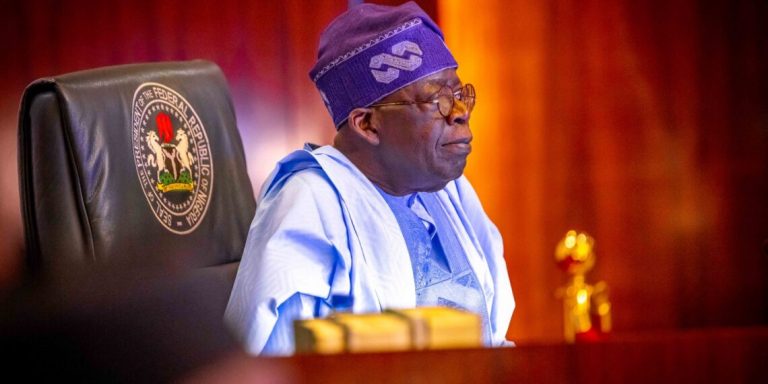
In a televised address to the nation, President Bola Tinubu addressed Nigeria’s pressing economic challenges and unveiled a series of reforms to steer the country towards prosperity.
President Tinubu began his speech by reaffirming his commitment to speak plainly and transparently about the nation’s economic issues. He stressed the necessity of removing the fuel subsidy, which he believed had outlived its usefulness and cost the country trillions of Naira annually.
“The subsidy costs us trillions of Naira yearly. Such a vast sum of money would have been better spent on public transportation, healthcare, schools, housing, and even national security,” President Tinubu said.
Register for Tekedia Mini-MBA edition 19 (Feb 9 – May 2, 2026): big discounts for early bird.
Tekedia AI in Business Masterclass opens registrations.
Join Tekedia Capital Syndicate and co-invest in great global startups.
Register for Tekedia AI Lab: From Technical Design to Deployment (next edition begins Jan 24 2026).
He expressed his concern over the disproportionate influence wielded by a select group of unelected individuals in the country’s political economy, emphasizing the need for the people’s sovereignty to drive Nigeria’s democratic system.
The President highlighted that the multiple exchange rate system had become a highway for currency speculation, diverting funds from essential sectors. He emphasized the urgent need to reform this system to ensure fair and equitable distribution of resources.
President Tinubu reassured the nation that these measures were essential to secure a better future for Nigeria. He acknowledged the immediate hardships facing citizens due to increased fuel prices and rising costs of goods.
However, he went on to unveil an array of interventions aimed at mitigating the impact on the most vulnerable and stimulating economic growth.
Among the key measures, the President announced a N75 billion investment to support 75 manufacturing enterprises. These enterprises would receive access to credit at a low-interest rate, fostering sustainable economic growth and job creation.
Additionally, the administration is set to energize micro, small, and medium-sized enterprises and the informal sector with a N125 billion stimulus package. This initiative aims to provide conditional grants to one million nano businesses and fund 100,000 MSMEs and start-ups.
President Tinubu also underscored the government’s commitment to agricultural development, with a plan to cultivate 500,000 hectares of farmland for rice, maize, wheat, and cassava. This ambitious program targets small-holder farmers and private-sector players, fostering growth and food security.
President Tinubu unveiled the Infrastructure Support Fund for States, aimed at revamping healthcare and educational infrastructure and improving rural access roads.
President Tinubu acknowledged the immediate difficulties Nigerians faced but urged them to focus on the broader picture. He expressed confidence that these reforms would lead Nigeria out of the darkness into a brighter, more prosperous future.
The government assured Nigerians that the implementation of the reforms would be closely monitored, and interventions would be made if necessary to address inflation and gasoline prices.
President Tinubu ended his address by reaffirming his dedication to work for the welfare of the people and the progress of the Federal Republic of Nigeria.
Meanwhile, mixed reactions from citizens have been trailing President’s address, with some expressing optimism about the proposed changes and others expressing concerns over the immediate economic impact.



